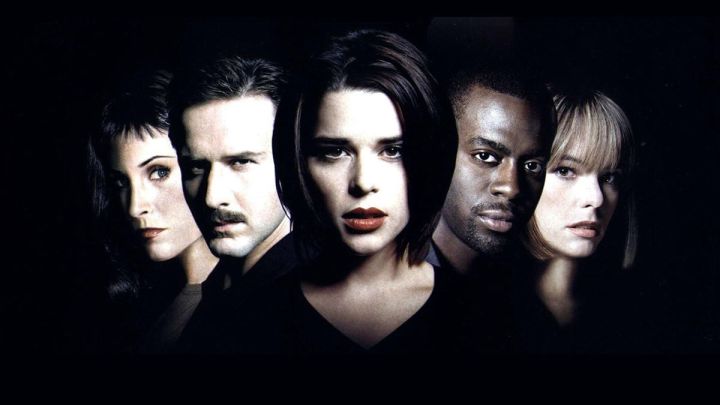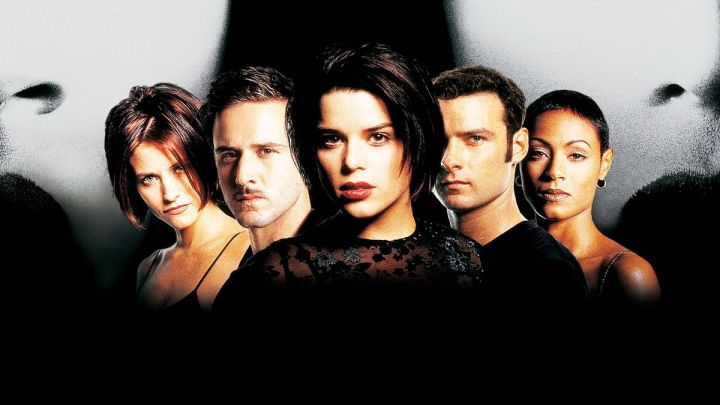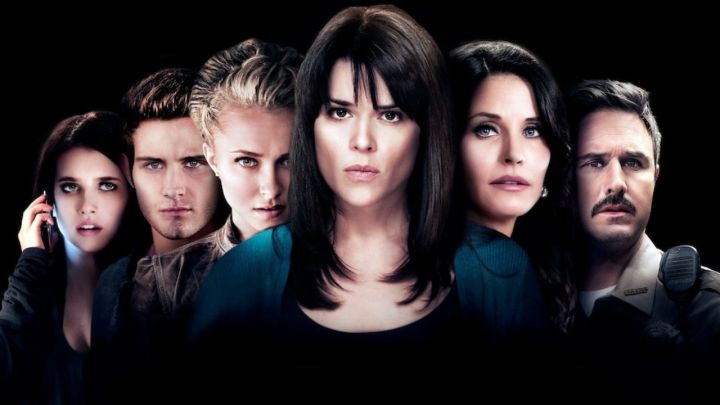Early reviews for Scream VI are lauding it as a new peak for the veteran franchise and the best entry since the game-changing 1996 original. Coming from the one-of-a-kind mind of the late great Wes Craven, Scream is the rare franchise that never runs out of steam. Thanks to a premise designed to reinvent itself with each new entry, Scream is the gift that keeps on giving, to the point where it wouldn’t be an overstatement to say every chapter in the series is among the all-time best horror movies.
While every entry in the series ranges from “good” to “great,” we can still rank them from worst to best. No fan’s ranking will look the same; some might be OG Scream purists, while others will insist 2022’s Scream is the new blueprint. However, we can all admit there are no weak entries in this franchise, with each film adding something to Ghostface’s lore while cementing Scream as a cinematic horror institution.
5. Scream 3 (2000)

Scream 3 was the presumed ending to the ’90s’ most unexpected trilogy. Neve Campbell, David Arquette, and Courteney Cox returned, joined by a new cast including Parker Posey, Scott Foley, and Patrick Dempsey. The action moves to Hollywood, where a new killer haunts the set of Stab 3, forcing the now-recluse Sydney Prescott out of hiding and into the action.
Your enjoyment of Scream 3 will depend entirely on whether you appreciate the franchise’s self-deprecating, self-conscious approach taking center stage. From Parker Posey’s delightful yet overwhelming Jennifer Jolie — the biggest proof of the series’ foresight powers — to the film’s scathing takedown of Hollywood sexual politics, Scream 3 pulls no punches, for better and worse. Yet 3 is also the biggest testament to the series’ enduring power and timeless quality. Decried during its original release, the film is now considered its most insightful entry, with good reason. It juggles each of the series’ overreaching themes — sexual condemnation, legacy, trauma, power abuse — and blends them into a mostly satisfying storyline while still feeling like a Scream movie. My one complaint is the weak villain, a long-lost brother that feels straight out of a cheap soap opera.
4. Scream (2022)

Nothing stays dead in Hollywood, especially not a potential franchise. It only took 10 years, but Scream came back in full strength with 2022’s Scream, a soft relaunch following the tepid response to Scream 4. The film brings the action back to Woodsboro, featuring a cast of new characters, each connected with the original 1996 murders. When a new Ghostface appears, the teens contact the original trio, who returns to face their infamous foe again.
Scream is very much a passing-of-the-torch situation. While Scream 4 was about nostalgia and blending past and present, Scream is all about the future. The central trio of Sidney, Gale, and Dewey play a fully supporting role to sisters Sam and Tara, who make for admittedly compelling new leads; still, Campbell remains effortlessly commanding, reminding everyone why she’s been the franchise’s face for nearly thirty years. Scream also has some of the franchise’s best and most brutal kills and a healthy dose of biting meta-humor. However, its greatest achievement is proving there’s still a place for slashers in our modern cinematic landscape. Scream isn’t perfect — its villain twist is far less surprising than it should be, and the plot occasionally descends into repetitive territory — but a stellar cast and a witty and fast-paced screenplay keep more than make up for the occasional flaws.
3. Scream 2 (1997)

Sequels can make or break a franchise; in Scream‘s case, it was the former. Arriving one year after the first one, Scream 2 follows Sidney to college, where her campus is terrorized by a new Ghostface intent on finishing the job his predecessors couldn’t. Cox and Arquette join Campbell alongside a new cast, including Jerry O’Connell, Timothy Olyphant, and Elise Neal.
Scream 2 is a logical and satisfying continuation of the first one, featuring an opening scene as memorable, if not as effective, as the one in Scream. Yet, the film’s real strength is its satisfying twist; Timothy Olyphant plays crazy like few others, but it’s Laurie Metcalf who steals the movie. Casting Metcalf as the killer is a stroke of genius, with the actress delivering a truly unhinged performance capable of standing beside Stu and Billy. Add an impromptu acapella number of Less than Jake’s “I Think I Love You” and a stellar supporting cast including Jada Pinkett and the one and only Sarah Michelle Gellar, Scream 2 is a worthy follow-up to the first one’s success.
2. Scream 4 (2011)

Scream 4 revived the long-dormant Scream franchise with a divisive entry that is far more maligned than it deserves. The plot centers on Jill, Sidney’s niece, who, along with her friends, becomes the target of a new Ghostface. With Sidney back in Woodsboro on a book tour, Ghostface takes his carnage to a new level as he operates under the “new rules” of a horror remake. Legacy and new characters clash in this weird mesh of ideas. However, Scream 4 might be the freshest entry since the original 1996 exercise in meta-horror. Scream 4 reinvents the series for the new millennium, finding the right balance between the cast of severely underrated youngsters — particularly Rory Culkin’s unnerving Charlie– and the central trio that made this franchise famous in the first place.
The film also deserves all the praise in the world for turning its would-be final girl into the killer, a choice that remains as brilliant now as it was back then. The final girl is a staple of horror who is synonymous with strength and “goodness.” Yet Scream 4 flips the script, turning Emma Roberts’ Jill into the cunning and vicious antagonist who’ll do anything for her 15 minutes of fame. Casting the then-good girl Roberts in the role allowed the movie to pull off its twist successfully, adding some much-needed bite to the series’ villains. Roberts was so great that she found newfound success playing mean-girl characters in varying stages of the murder scale, from the bitchy witch Madison in American Horror Story to Chanel in the severely underrated Scream Queens.
1. Scream (1996)

Nothing tops the original, right? 1996’s Scream shook the horror world with a clever and genuinely shocking approach, unafraid to mock and challenge the genre while still honoring it. Neve Campbell stars as teenager Sidney Prescott, who becomes the target of a masked killer out to kill her and her friends. Aided by the hapless deputy sheriff, Dewey Riley, and harassed by cutthroat reporter Gale Weathers, Sidney tries to outsmart the killer before he gets her.
In many ways, Scream is a typical slasher: it has a virginal protagonist, a relentless serial killer, and a cast of ever-increasing suspects who fall, one by one, to Ghostface’s knife. Yet, Scream is widely considered a cinematic milestone for a reason: it subverted the slasher genre, not by challenging but by deconstructing it. Scream has its cake and eats it, too, an impressive feat in a genre that usually exists in a vacuum to justify its excesses. With horror’s most iconic opening scene, a score that remains striking today, and a cast of characters who have already stood the test of time, Scream is a cinematic triumph in every possible way.



